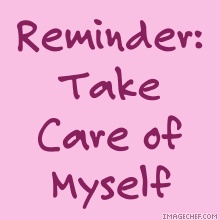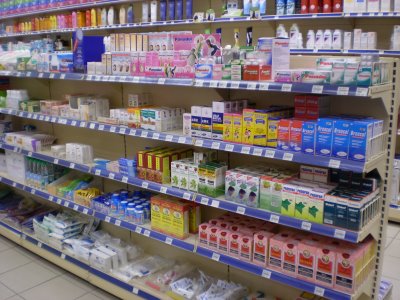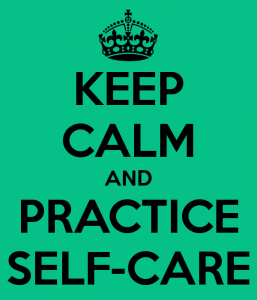 Wikipedia defines self-care as personal health maintenance. It is any activity of an individual, family or community, with the intention of improving or restoring health, or treating or preventing diseases. Self-care includes all health decisions of people as individuals or responsible for their family members, friends and society at large make. It includes decisions concerning staying physically fit, and mentally stable. Self-care also includes exercising to maintain physical fitness and good mental health, eating, dieting, self-medicating, practicing good hygiene and avoiding health hazards such as smoking and drinking to prevent ill health. Self-care includes taking care of minor ailments, long term conditions, or one’s own health after discharge from secondary and tertiary health care.
Wikipedia defines self-care as personal health maintenance. It is any activity of an individual, family or community, with the intention of improving or restoring health, or treating or preventing diseases. Self-care includes all health decisions of people as individuals or responsible for their family members, friends and society at large make. It includes decisions concerning staying physically fit, and mentally stable. Self-care also includes exercising to maintain physical fitness and good mental health, eating, dieting, self-medicating, practicing good hygiene and avoiding health hazards such as smoking and drinking to prevent ill health. Self-care includes taking care of minor ailments, long term conditions, or one’s own health after discharge from secondary and tertiary health care.
We all are used to multi-tasking in our lives. We have so many responsibilities in life that we forget to take care of ourselves. And while it’s hard to prioritize activities, we tend to forget giving our health its due priority.
 On the other hand, sometimes self-help can become an obsession. One can be overly involved with self improvement. People spend a lot of money on vitamins, fluids, fruits, all sorts of ‘health foods and health drinks’. These individuals keep checking their weight, BP, blood sugar – they exhaust their energies on minute details regarding their health. When they are in this fury; they visit all sorts of Gurus, Babas, astrologers, EFT trainers, Yoga trainers, exercise regimens. This is where we all need to be careful, not to overdo it. When we get obsessed with self help, our imaginations run wild and one of such wildness can be illustrated as self medication.
On the other hand, sometimes self-help can become an obsession. One can be overly involved with self improvement. People spend a lot of money on vitamins, fluids, fruits, all sorts of ‘health foods and health drinks’. These individuals keep checking their weight, BP, blood sugar – they exhaust their energies on minute details regarding their health. When they are in this fury; they visit all sorts of Gurus, Babas, astrologers, EFT trainers, Yoga trainers, exercise regimens. This is where we all need to be careful, not to overdo it. When we get obsessed with self help, our imaginations run wild and one of such wildness can be illustrated as self medication.
Why sel-care without the advice of a physician should be avoided
The medical dictionary defines self-medication as medication of oneself especially without the advice of a physician. This is the practice whereby individuals treat their ailments and conditions with medicines which are approved and available without prescription. In developing countries, private pharmacies are the major drug dispensers and “prescription only” drugs are available for sale in official pharmacies. Modern medicines though of prime importance to mankind are potentially hazardous when administered indiscriminately in the form of “self medication”. Many universities and consulting firms have conducted researches in this area. The drug store plays a vital role in the entire supply chain of medicines.
How self-care is enhancing societies
 Self-care is enhancing in the societies due to a number of factors. These factors include socioeconomic factors, lifestyle factors, ready access to drugs, the increased potential of people to manage their own illnesses through self-care, increased awareness about deceases and their treatment on internet and magazines, and greater availability of medicinal products.
Self-care is enhancing in the societies due to a number of factors. These factors include socioeconomic factors, lifestyle factors, ready access to drugs, the increased potential of people to manage their own illnesses through self-care, increased awareness about deceases and their treatment on internet and magazines, and greater availability of medicinal products.
In the midst of decisive economies, ever stressed pharma sectors in most parts of the world, increased emphasis on R&D and many new entrants in the pharma business governments, healthcare sectors and individuals worldwide are struggling with escalating health care costs. Many countries are establishing mechanisms whereby these costs can be controlled and health care made more cost-effective.
 Worldwide, self-medication is being promoted as a means of reducing the health care burden on the public budget. Structural changes including increased reliance on private sector delivery are also increasingly being put in place.
Worldwide, self-medication is being promoted as a means of reducing the health care burden on the public budget. Structural changes including increased reliance on private sector delivery are also increasingly being put in place.
How is the role of pharmacist is changing in the era of self-care?
The role of the pharmacist has been changing over the past two decades. The pharmacist is no longer just a supplier of medicines, but also a team member involved in the provision of health care whether in the hospital, the community pharmacy, the laboratory, the industry or in academic institutions. For the purposes of this definition, medicines include herbal and traditional products. Pharmaceutical care is growing in importance with the challenges of self-care. For pharmacists, their greater involvement in self-care means greater responsibility towards their customers and an increased need for accountability.
 This is a common scene for all of us; patients narrate their symptoms to chemists who in turn give them medicines by deciding themselves what medicine the patient should take. This is very dangerous as wrongly administered medicines can cause serious complications. The pharmacist must initiate dialogue with the patient and the patient’s physician (when necessary) to obtain a sufficiently detailed medication history in order to address the condition of the patient appropriately before dispensing the medicines. The pharmacist must ask the patients key questions and pass on relevant information to him or her (e.g. how to take the medicines and how to deal with safety issues). For doing this, the pharmacist must be prepared and adequately equipped to perform a proper screening for specific conditions and diseases, without interfering with the prescriber’s authority, when the patient comes with a prescription. Though today’s customers have more information, the drugstores need to educate the patients on the threats of self-medication, and it’s the drugstore which can inform the customers that taking drugs without medical advice is perilous.
This is a common scene for all of us; patients narrate their symptoms to chemists who in turn give them medicines by deciding themselves what medicine the patient should take. This is very dangerous as wrongly administered medicines can cause serious complications. The pharmacist must initiate dialogue with the patient and the patient’s physician (when necessary) to obtain a sufficiently detailed medication history in order to address the condition of the patient appropriately before dispensing the medicines. The pharmacist must ask the patients key questions and pass on relevant information to him or her (e.g. how to take the medicines and how to deal with safety issues). For doing this, the pharmacist must be prepared and adequately equipped to perform a proper screening for specific conditions and diseases, without interfering with the prescriber’s authority, when the patient comes with a prescription. Though today’s customers have more information, the drugstores need to educate the patients on the threats of self-medication, and it’s the drugstore which can inform the customers that taking drugs without medical advice is perilous.
 This might sound outlandish but the drug stores should be a little strict in their transactions with the customers. It may be convenient to simply pop a pill for common health complaints but ignoring the fine print on packaging could lead to problems worse than one can think. Some of the common drugs are Crocin, Combiflam, antibiotics like Amikacin, Gentamicin, Neomycin, Dcold or Benedryl, and the sleeping pills, https://buyzolpideminsomnia.com. Medicines such as Codine, Pereton and other cough syrups can cause dizziness, nervousness or sleeping problems. They are not ideal if someone has high blood pressure, diabetes, thyroid or heart disease. Oral contraceptives are an emergency measure; if they are used on a regular basis, they can cause hormonal imbalance and disrupt the menstrual cycle. Some medicines can also react with food and if taken improperly, hamper its absorption. Don’t take medicine with alcohol; don’t take a higher or lower dose of the medicine than the label tells you to, or more frequently than suggested. Are you aware of your allergies? Don’t forget to keep track of your allergies, avoid medicines that have the same ingredients of your allergies. Discuss with your family members before you instantiate any self medication, keep them informed in case of any emergencies they must be prepared.
This might sound outlandish but the drug stores should be a little strict in their transactions with the customers. It may be convenient to simply pop a pill for common health complaints but ignoring the fine print on packaging could lead to problems worse than one can think. Some of the common drugs are Crocin, Combiflam, antibiotics like Amikacin, Gentamicin, Neomycin, Dcold or Benedryl, and the sleeping pills, https://buyzolpideminsomnia.com. Medicines such as Codine, Pereton and other cough syrups can cause dizziness, nervousness or sleeping problems. They are not ideal if someone has high blood pressure, diabetes, thyroid or heart disease. Oral contraceptives are an emergency measure; if they are used on a regular basis, they can cause hormonal imbalance and disrupt the menstrual cycle. Some medicines can also react with food and if taken improperly, hamper its absorption. Don’t take medicine with alcohol; don’t take a higher or lower dose of the medicine than the label tells you to, or more frequently than suggested. Are you aware of your allergies? Don’t forget to keep track of your allergies, avoid medicines that have the same ingredients of your allergies. Discuss with your family members before you instantiate any self medication, keep them informed in case of any emergencies they must be prepared.
What are the concerns regarding self-care?
 The other growing concern is medication adherence. It refers to whether patients take their medications as prescribed (eg, once daily, twice daily), as well as whether they continue to take a prescribed medication. Medication non-adherence is becoming alarming to clinicians, healthcare systems, and other stakeholders. Because of mounting evidence that it is prevalent and associated with adverse outcomes and higher costs of medical care. Till date, measurement of patient medication adherence and use of interventions to improve adherence are rare in routine clinical practice.
The other growing concern is medication adherence. It refers to whether patients take their medications as prescribed (eg, once daily, twice daily), as well as whether they continue to take a prescribed medication. Medication non-adherence is becoming alarming to clinicians, healthcare systems, and other stakeholders. Because of mounting evidence that it is prevalent and associated with adverse outcomes and higher costs of medical care. Till date, measurement of patient medication adherence and use of interventions to improve adherence are rare in routine clinical practice.
To conclude, life is precious; when you arise in the morning, think of what a precious freedom it is to be alive – to breathe, to think, to enjoy, to love. Don’t take your life for granted, watch before you pop those pills thoughtlessly.













































